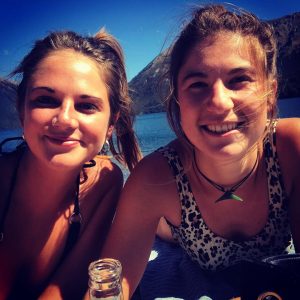“Home” is a word with such significant connotations – a word attached to the concept of family, love, longing, and identity. We lucky ones know where we might call our ultimate home, often where we grow up or where we start our own family. Yet despite its importance, it’s also a word we use incredibly lightly. In the last five months, I’ve described perhaps eight places as “home” in a casual context, ranging from our two-month house in Greymouth, to a hostel in Wellington, to our car Max; some places we might only have stayed for a couple of nights.
Considering the emotional significance in the term “home”, it’s a wonder we haven’t come up with a different word to describe these temporary stopping points – something which captures the physical aspects of a home, but perhaps not the extent of the sentimental. It seems that this word might subconsciously aid our settling in process, making us feel comfortable in a new environment – as much a wish for the comfort of “home” as a convenient description. Or perhaps it is the difference between physical space and a concept: “home” can be both purely symbolic or purely physical, but is best when it’s somewhere in between.
I think a small part of me feels guilty about referring to New Zealand as my current home. I’m touched by a feeling of disloyalty to family and friends, especially when I consider that although I miss people hugely, I am yet to feel truly “homesick”. This doesn’t make my family home any less important to me, and it makes sense that if you feel truly “at home” somewhere then you won’t long for another; it just makes me extremely lucky – to feel “at home” somewhere is such a gift, not to be taken for granted. But this humbling sense of belonging doesn’t mean we shouldn’t move on, trying new places and people who might or might not offer us this same luxury. It might be the most valuable thing about travelling: finding happiness and a new part of yourself in unfamiliar places.
Here’s to many more homes to come.
